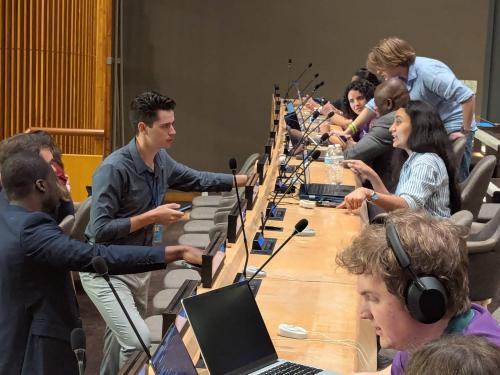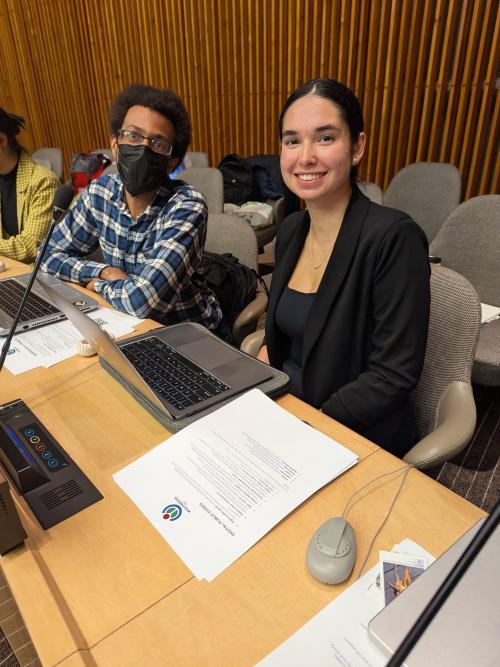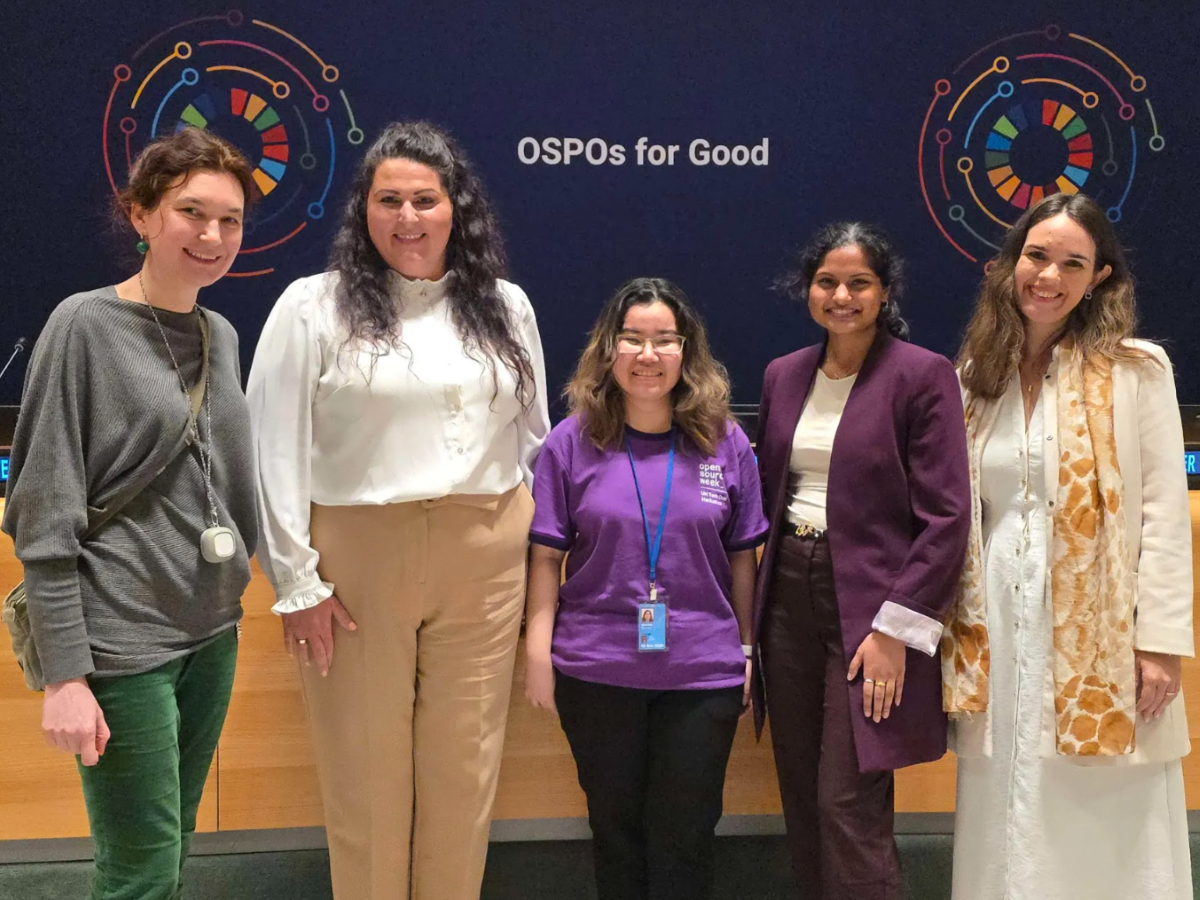Hi, I’m Shruthiveena Krishnamurthy, an MPH student here at George Washington University.
I had the pleasure of representing our school at the United Nations in June 2025...

On what would’ve otherwise been another cloudy day in NYC, the UN Headquarters is nestled right in the heart of the bustling city. Yet during Open Source Week, there is a different air surrounding the building, almost as if charged with electricity. You feel it as you approach the gates and try not to make eye contact with the stern security as you wait to inevitably mess up the routine during bag check. Professionals from all over the world, from all kinds of backgrounds—technologists, innovators, climate change and public health enthusiasts—were convening right here, eager to connect and dream together.
There is so much importance and history in every hallway, every footstep. During the Tech Over Hackathon and Wikipedia Edit-a-thon, I and six other GW students (Natalia Uccelli, Shriya Khadilkar, Anusha Umashankar, Benyat Yimaj, Anket Patil, and Dhairya Ashvin Shah) got to leave our own mark walking the same path.
On Day One, all the participants for the Hackathon met in the ECOSOC Chamber, where the back wall is left symbolically unfinished, serving as a reminder that “our work is never done.” For those of us that had already found teams on Discord prior to the start of the hackathon, we now had the opportunity of putting faces to names, a minor herculean task. For those that hadn’t, you were now able to put together your very own team of uniquely bright minds to build on a vision that directly impacts UNICEF’s mission.
We had three challenges set out before us, each team choosing their own “Ahead of the Storm” adventure:
Challenge 1: Unlocking child-centric extreme weather intelligence: from hindcasting to forecasting, from reaction to pro-action.
Challenge 2: Solving the “Geo-Puzzle”: Developing methods for overlaying multi-hazard data layers.
Challenge 3: Make the Risk Data Visible & Actionable: Develop new GeoSight features to support effective disaster preparedness and response.

In a matter of 48 hours, you and your team needed to not only choose your challenge, but create a unique solution from scratch, complete with a business and sustainability proposal and cohesive presentation. From concept design, to solution formulation, to working code, you were creating a viable product at breakneck speed.
Day Two was hosted in the Trusteeship Council Chamber, another iconic setting where the ceiling and floor mirror each other’s design to cement the value of equality. As you can imagine, this was a day to tighten your metaphorical seatbelts—the game was on, and the finish line nearing—our project deadlines were set to 2:30pm EST. Strangely, you felt your team work together in unison without much resistance, the fact that you’d met just the day prior a long forgotten detail. Presentations were cranked out, and working models were perfected, with each detail carefully and efficiently crafted, just in time for two rounds of judging before the winners were announced.
As the event came to a close, we had the pleasure of celebrating the winners, amongst them Anket Patil and Dhairya Ashvin Shah, both GW students—special thanks and congratulations bringing home a win for Challenge 1!
One of us attended the Wikipedia Edit-a-thon that coincided with Day One of the Tech Over Hackathon, featuring complementary work as 37 participants raced against the clock to update Wikipedia pages, improving the accessibility and accuracy of the research reports we all rely on in today’s digital world.
Regardless of how you placed, the room was resounding with the same feedback during reflection; how uniquely fulfilling it is to impact UNICEF’s and Wikipedia’s mission in such a direct manner. How diversity is not only tolerated but celebrated during the event, with no bar based on age, background, or technical skill. How good it feels to leave knowing we have power to make a difference so long as we stay curious and ready to innovate, and to know that there are so many minds out there working to help make the world better.
Thank you to all those at GW for allowing each of us this wonderful opportunity to represent our bright student body.
Raise High,
Veena




